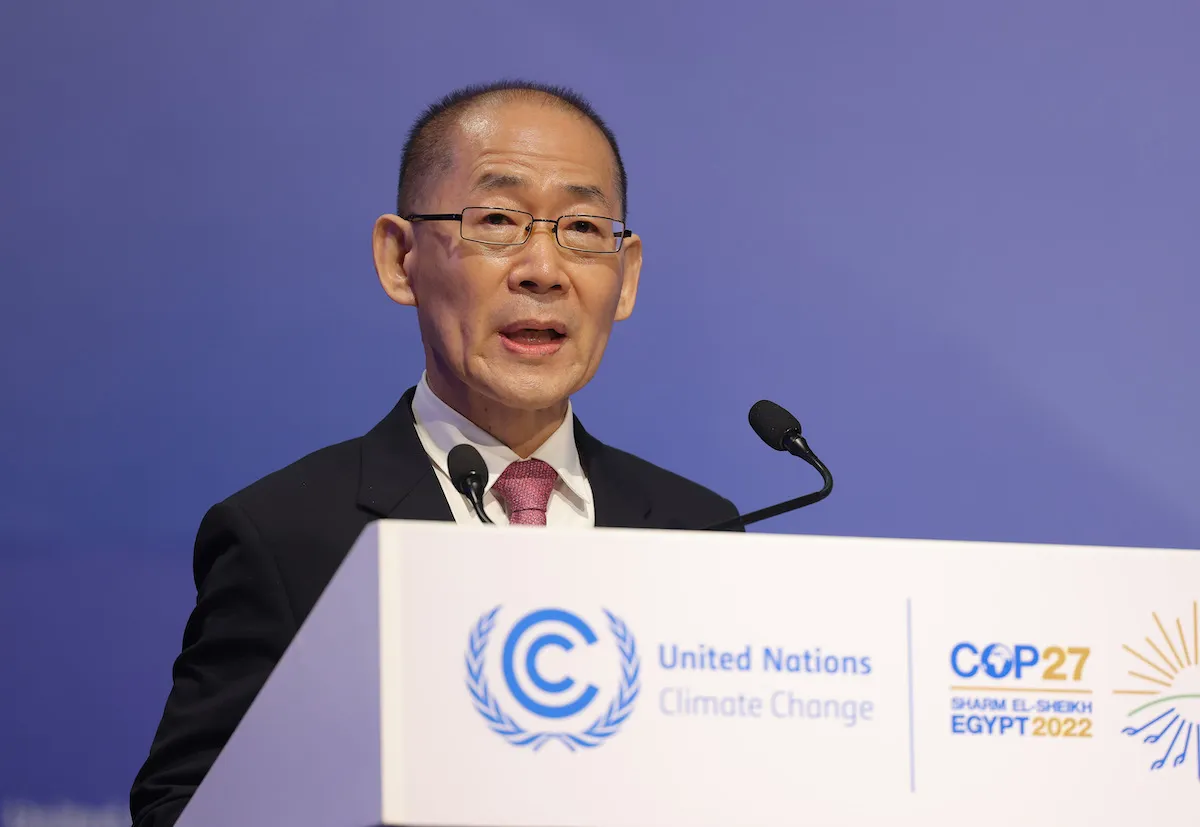Can humanity tackle climate change or are we all doomed? That’s the big question at the heart of a new analysis by the Intergovernmental Panel on Climate Change (IPCC), published on 20 March after a week of discussions between key world climate experts.
In short, this report is a big deal. But, consisting of 36 jargon-stuffed pages, it's also not an easy read. Fortunately, we’ve pulled out everything that you need to know.
What actually is the AR6 report and why is it important?
It is the fourth and final section of the sixth assessment report (AR6), the first of which was published in August 2021. It is a summary of the findings of the three earlier reports and represents the IPCC’s most up-to-date thinking on how to best tackle climate change.
What is the IPCC?
The IPCC is the United Nations body tasked with assessing the science related to climate change. It was set up in 1988 by the World Meteorological Organization and the United Nations Environment Programme with the aim of providing governments with accurate science that they can base their climate policies around and is currently made up of 195 member countries.
It does not conduct its own research, instead global experts volunteer their time to assess the thousands of scientific papers published each year to produce a summary of the current picture regarding climate change and its future risks.
What does the report say about our current situation?
The report states that human activity led to a global surface temperature rise of 1.1°C above pre-industrial levels by 2011-2020. The report states that human activity led to a global surface temperature rise of 1.1°C above pre-industrial levels by 2011-2020.
This isn’t great considering that in 2018 the IPCC said humanity would only be able to avoid the worst impacts of climate change by limiting global warming by 1.5°C. The rise is chiefly due to the use of unsustainable energy sources, land-use change and patterns of consumption.
This rise in temperatures has already resulted in widespread changes in the Earth’s atmosphere, weather systems, oceans and biosphere. The last decade has been warmer than any period for around 125,000 years, concentrations of carbon dioxide in the atmosphere are at their highest for at least two million years and summer Arctic ice coverage is lower than any time in the last 1,000 years.
Also, sea levels are rising faster than in any previous century for 3,000 years, oceans are warming faster than any time since the last ice age and acidification is at its highest for 26,000 years.

However, all is not lost.
“This Synthesis Report underscores the urgency of taking more ambitious action and shows that, if we act now, we can still secure a liveable sustainable future for all," said IPCC Chair Dr Hoesung Lee.
The report also states that each increment of warming will make the challenge progressively more difficult to overcome, with more vulnerable regions suffering the brunt of the damage.
“Climate justice is crucial because those who have contributed least to climate change are being disproportionately affected,” said report co-author Aditi Mukherji, Director of Climate Adaptation and Mitigation Impact Area Platform at the International Water Management Institute.
“Almost half of the world’s population lives in regions that are highly vulnerable to climate change. In the last decade, deaths from floods, droughts and storms were 15 times higher in highly vulnerable regions.”
Are we all doomed?
Not yet. Although the report does state that the pace and scale of current measures are simply not enough to mitigate the cascading effects of climate change, it makes it clear that there is still a chance we can limit temperature rises to 1.5°C if world governments act now.
Key measures that need to be put in place are: rapidly shifting away from our reliance on coal power plants and fossil fuels – the number one driver of climate change; investing heavily in clean, renewable energy; increasing the use of public transport and electrical vehicles and halting deforestation.
As well as helping mitigate the effects of climate change, making these changes could also provide wider benefits to society, the report says. For example, the increased use of walking, cycling and the use of public transport could improve health and air quality and provide employment opportunities.
The economic benefits resulting in increased health due to air quality improvements alone would be equal to, or even larger, than the costs of reducing the emissions, the experts say.
Changing our dietary habits and food production methods could also play an important role if we eat more plants and less meat, reduce food waste and improve agriculture practices.
“Transformational changes are more likely to succeed where there is trust, where everyone works together to prioritise risk reduction, and where benefits and burdens are shared equitably,” said Lee.
“We live in a diverse world in which everyone has different responsibilities and different opportunities to bring about change. Some can do a lot while others will need support to help them manage the change.”
When will the next IPCC report be published?
The next report isn’t on cards until around 2030 – by this time we should have a better idea exactly how well we have done and how bleak, or not, the picture remains.
Read more about climate change: